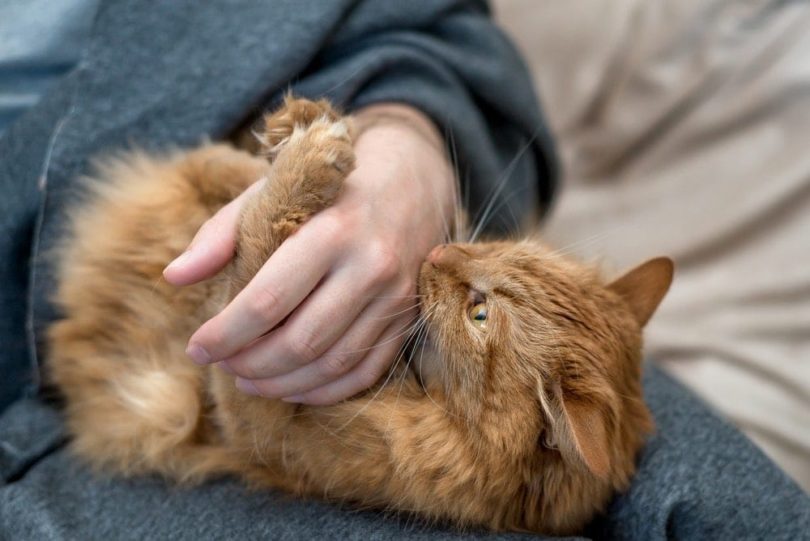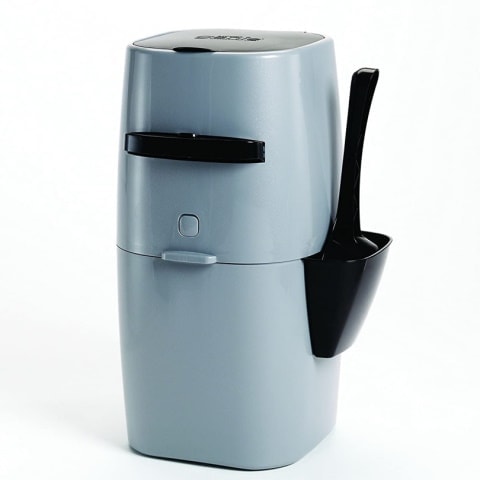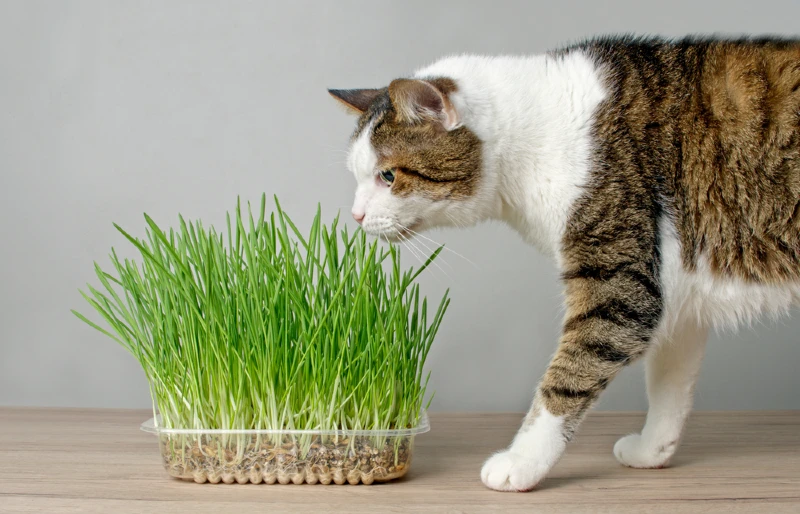Is Citronella Toxic to Cats? Vet-Approved Facts & FAQ
Updated on
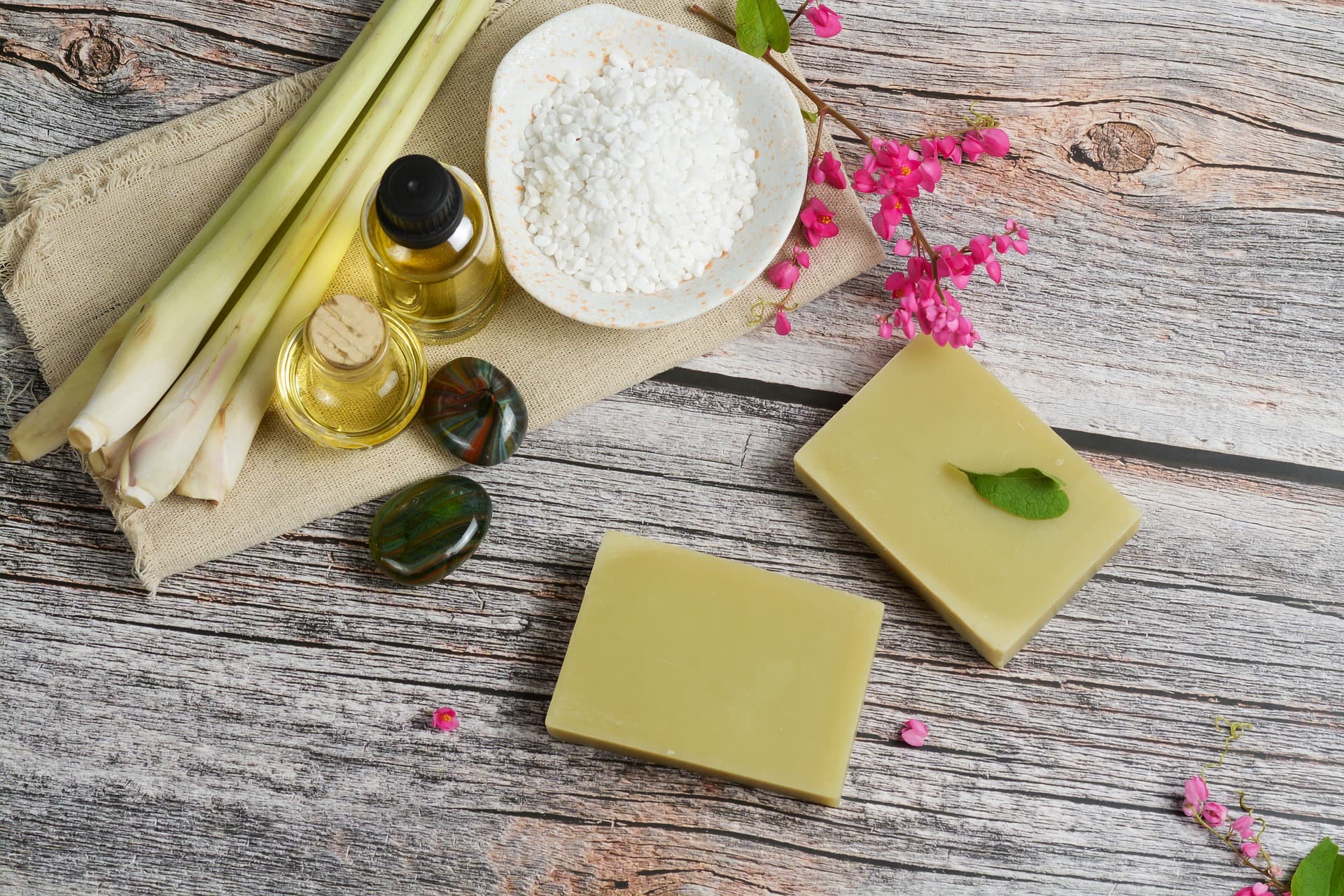
Click to Skip Ahead
Citronella is a well-known mosquito repellent that smells nicer than bug spray. But there are many plants and essential oils that aren’t good for cats. Whether you use one inside or in your backyard, where your cat also enjoys hanging out with you, it’s important to have a full understanding of what is safe to use around your cat.
The citronella plant itself isn’t directly harmful to cats based on currently available info, but it’s best to keep your cat well away from its other products, such as essential oils or candles. Here, we discuss citronella in its more popular forms and how they could affect your cat.
A Bit About the Citronella Plant
There’s a bit of confusion surrounding the citronella plant because there are two plants that are known as citronella. Both are actually completely different species, and only one is the true citronella.
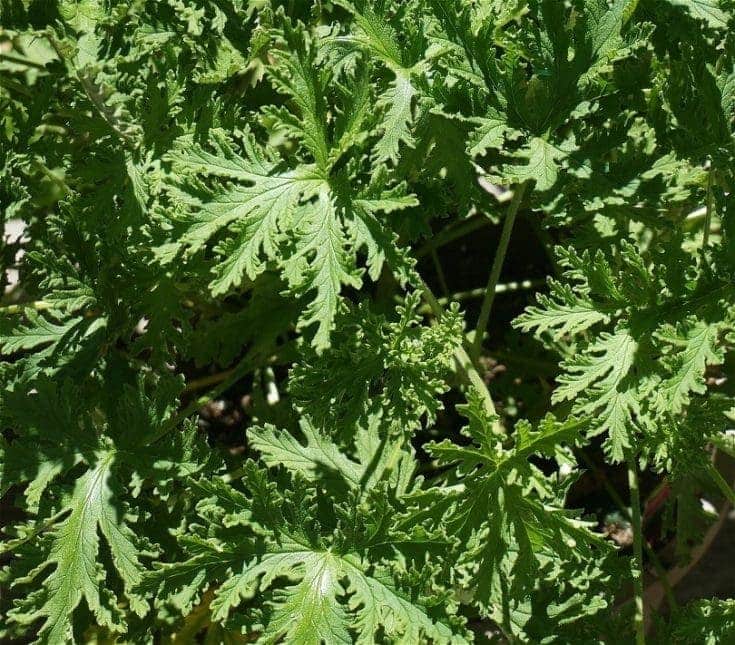
The Citronella Plant
The real citronella is a grass that is related to lemongrass, which helps explain its lemony scent. Its origins are in Asia, but it can be grown just about anywhere.
The plant does not repel mosquitos in its raw form; it’s the oil inside the grass leaves that does the job once it’s extracted. While the citronella plant isn’t a danger to your cat, based on the available information, you should still plant it in locations that your cat can’t access, just to be on the safe side. Of course, your cat might naturally not want to go near it because cats dislike citrus scents.
The Mosquito Plant
You’d think that it would be the true citronella with a name like this, but while this plant does go by the name of citronella, it’s actually a type of geranium (and geraniums are considered toxic by the ASPCA and the Pet Poison Helpline). It has lace-like leaves and blooms pretty purple and red flowers.
While this plant does have a lemony scent like the real citronella, it has a variable effect on mosquitoes. These plants can definitely be toxic to cats, so if you have them in your garden, you need to find a way to keep your cat away from them.
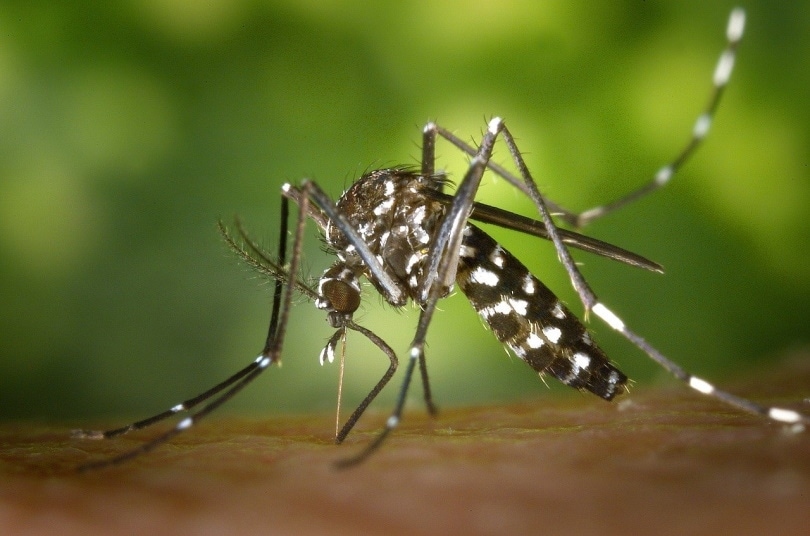
What Else Can the Citronella Plant Do?
Citronella does work to repel mosquitoes, and it can repel other flies and even lice. It also has other medicinal properties and has been used as:
- Anti-fungal
- Anti-bacterial
- Anti-inflammatory
- Fever reducer
- Pain and tension reliever
The oil must be extracted from the grass leaves to get the full effects of citronella.
Citronella Torches and Candles
This is where particular caution should be applied. Unfortunately, torches and candles use citronella oil, which makes them more of a safety issue for your cats. Don’t ever burn the candle indoors around your cat. In that enclosed space, the fumes from the candle can be toxic.
It’s usually okay to light them outside as long as you keep your cat away from them (which might not be a problem, due to the lemony scent that cats tend to not like).
Torches tend to have a stronger and more concentrated citronella oil, so again, keep your cat away from them. If there’s any spillage, make sure your cat doesn’t ingest it or get any on their fur. It can cause burns and stomach upset.
Citronella Essential Oils
Essential oils in all forms should be kept away from cats. Some are worse than others, but cats lack a specific enzyme in their livers that breaks down essential oils. When an essential oil is on a cat’s skin, or gets inhaled or ingested, the cat’s liver is unable to metabolize and eliminate the oil.
- Vomiting
- Drooling
- Loss of balance
- Respiratory distress
- Low body temperature
- Liver failure
- Low heart rate
- Seizures
- Death
Inhaling essential oils through diffusers or candles can also make your cat quite ill. Signs that your cat has inhaled essential oil or other toxic fumes can include:
- Respiratory distress
- Open mouth breathing and panting (this is a serious emergency!)
- Wheezing
- Coughing
- Vomiting
- Drooling (usually accompanied by nausea)
- Watery eyes and nose
- Burning sensation in the throat
You may notice your cat having difficulty breathing, which includes rapid breathing, coughing, wheezing, and panting.
If you see your cat struggling to breathe, breathing fast or with their mouth open, particularly after you’ve used any kind of fragrances, they should be moved immediately into the fresh air, and you should call your vet right away, particularly if your cat doesn’t seem to get better in the fresh air.
The ASPCA and the Pet Poison Helpline don’t list citronella as toxic to cats, although they do warn against using citronella candles, oils, and insect coils, and there is very little information or data on this topic and no apparent documented cases of toxicity. However, citronella as an essential oil can still potentially poison your cat, so to be safest, keep any citronella oils away from your pets.
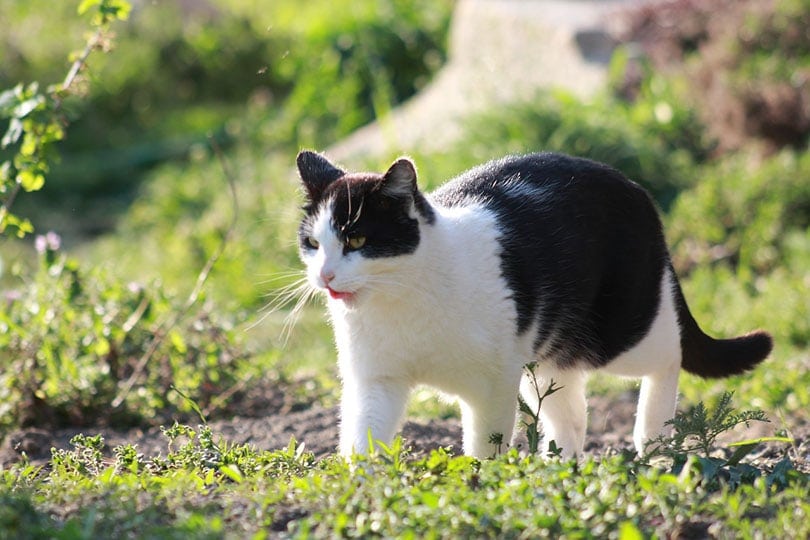
Using Citronella as a Cat Deterrent
You might have heard advice that you can use citronella to deter cats from entering certain areas. Whether it’s for inside the home to stop your cat from scratching your couch or outside where strays come into your garden, using citronella as a repellent is not recommended because it’s potentially toxic. You don’t want to risk your neighbor’s or your own cat’s health.
Other Insect Repellent Options
If you would like to fill up your garden with natural insect repellents that are also safe for cats, try planting the following:
- Rosemary
- Lemon balm
- Basil
- Catnip
Of course, if you plant catnip, you could end up with many feline visitors!
- Peppermint
- Lavender
- Garlic
- Chives (anything oniony)
- Geraniums
You can consult ASPCA’s toxic and non-toxic plants for more ideas on what to plant in your garden.
You should also take extra steps like covering up or emptying any standing water in your backyard since this is where mosquitoes breed and lay their eggs.
Conclusion
The true citronella plant (the grass, not the geranium) is technically safe for cats, but its extracted oils are not. Citronella essential oil and any other essential oils should be kept away from your cat because they can be quite poisonous and potentially life-threatening.
If you burn citronella torches or candles outside and keep your cat away from them, it should be safe enough. You don’t want to risk the oil spilling from the torch if your cat decides to scratch it or rub it.
Under no circumstances should you use essential oils in a diffuser, as even inhaling the vapor can cause a bad reaction in your cat.
Talk to your vet if you are ever concerned about your cat’s health or if you’re just looking for advice on what is safe to use around your cat. As annoying as mosquitoes are, your kitty’s health is far more important than a few itchy mosquito bites!
Featured Image Credit: Pixabay


